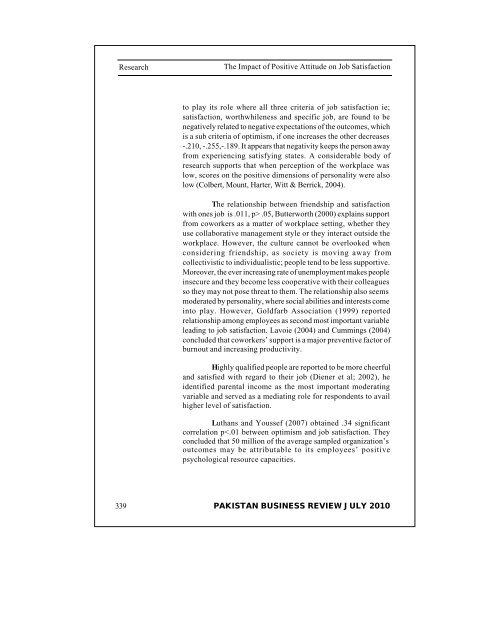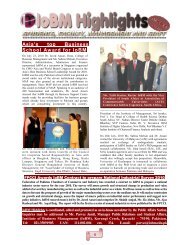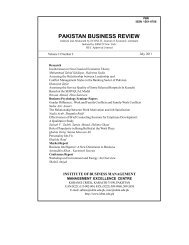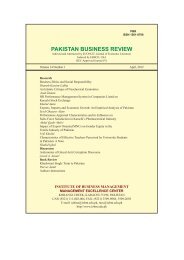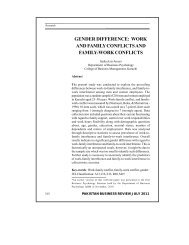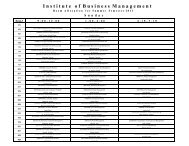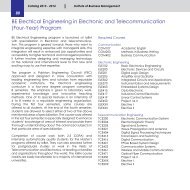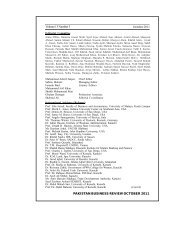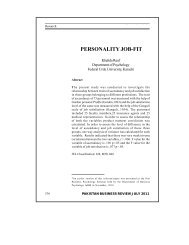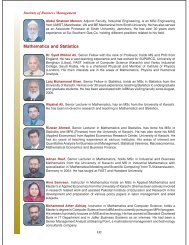Complete Volume - Institute of Business Management
Complete Volume - Institute of Business Management
Complete Volume - Institute of Business Management
You also want an ePaper? Increase the reach of your titles
YUMPU automatically turns print PDFs into web optimized ePapers that Google loves.
Research<br />
The Impact <strong>of</strong> Positive Attitude on Job Satisfaction<br />
to play its role where all three criteria <strong>of</strong> job satisfaction ie;<br />
satisfaction, worthwhileness and specific job, are found to be<br />
negatively related to negative expectations <strong>of</strong> the outcomes, which<br />
is a sub criteria <strong>of</strong> optimism, if one increases the other decreases<br />
-.210, -.255,-.189. It appears that negativity keeps the person away<br />
from experiencing satisfying states. A considerable body <strong>of</strong><br />
research supports that when perception <strong>of</strong> the workplace was<br />
low, scores on the positive dimensions <strong>of</strong> personality were also<br />
low (Colbert, Mount, Harter, Witt & Berrick, 2004).<br />
The relationship between friendship and satisfaction<br />
with ones job is .011, p> .05, Butterworth (2000) explains support<br />
from coworkers as a matter <strong>of</strong> workplace setting, whether they<br />
use collaborative management style or they interact outside the<br />
workplace. However, the culture cannot be overlooked when<br />
considering friendship, as society is moving away from<br />
collectivistic to individualistic; people tend to be less supportive.<br />
Moreover, the ever increasing rate <strong>of</strong> unemployment makes people<br />
insecure and they become less cooperative with their colleagues<br />
so they may not pose threat to them. The relationship also seems<br />
moderated by personality, where social abilities and interests come<br />
into play. However, Goldfarb Association (1999) reported<br />
relationship among employees as second most important variable<br />
leading to job satisfaction. Lavoie (2004) and Cummings (2004)<br />
concluded that coworkers’ support is a major preventive factor <strong>of</strong><br />
burnout and increasing productivity.<br />
Highly qualified people are reported to be more cheerful<br />
and satisfied with regard to their job (Diener et al; 2002), he<br />
identified parental income as the most important moderating<br />
variable and served as a mediating role for respondents to avail<br />
higher level <strong>of</strong> satisfaction.<br />
Luthans and Youssef (2007) obtained .34 significant<br />
correlation p


